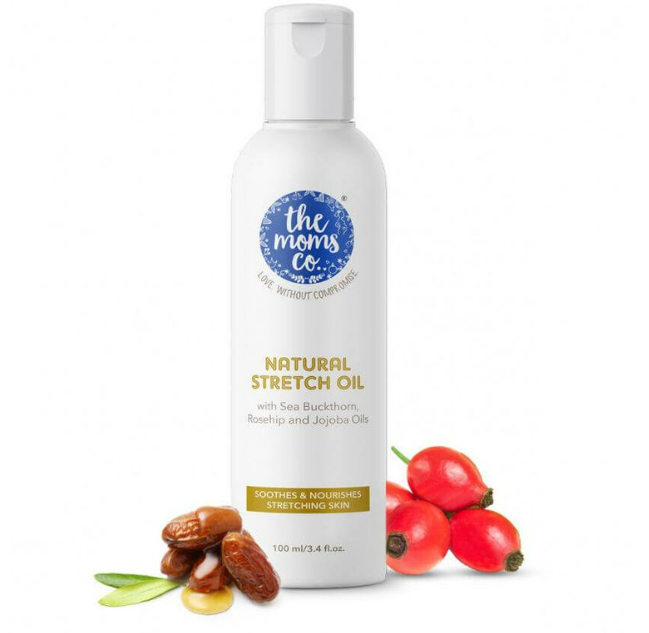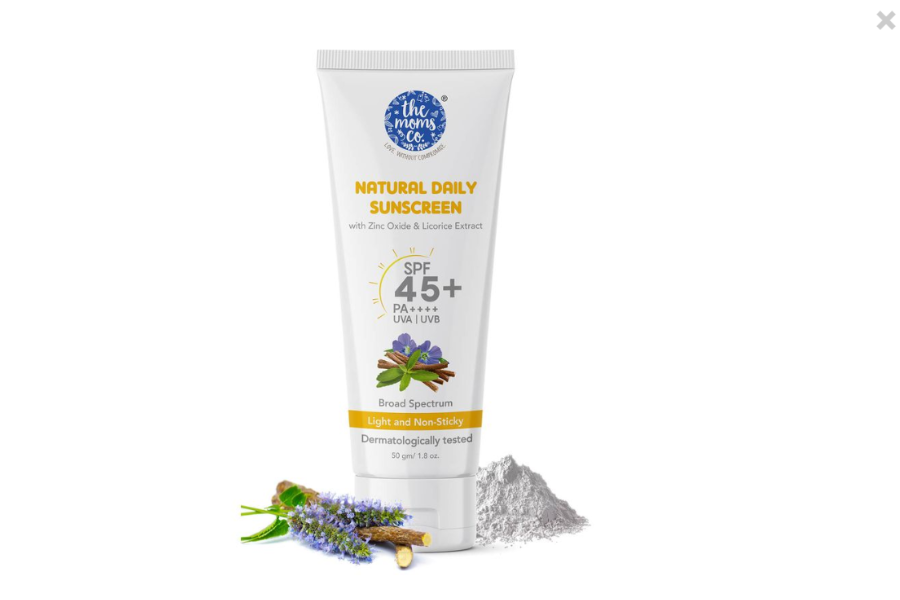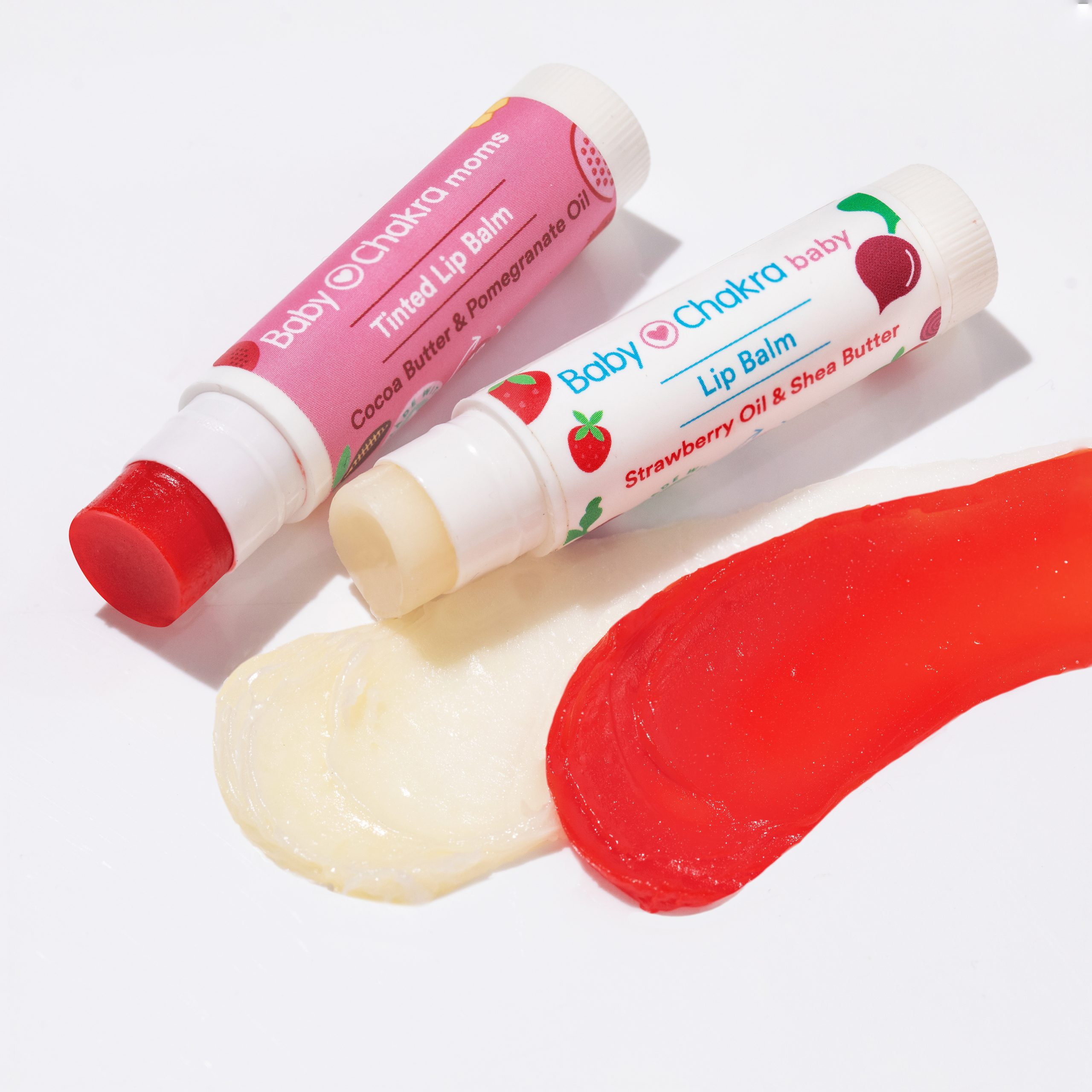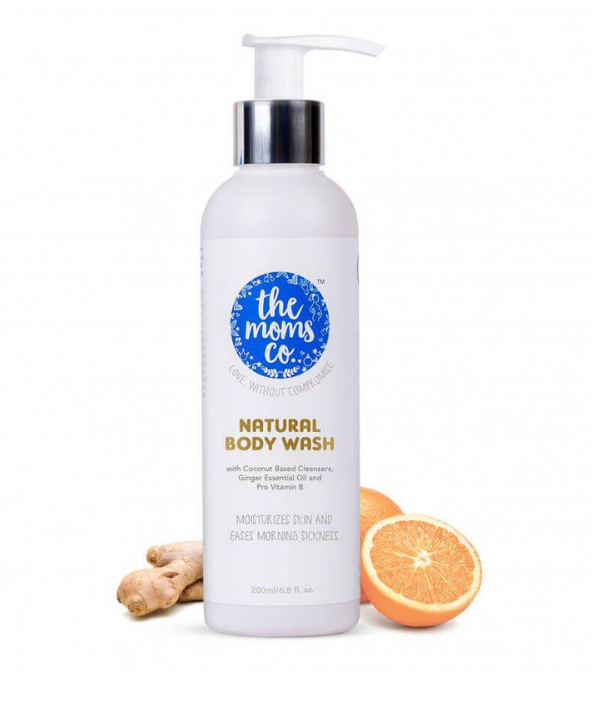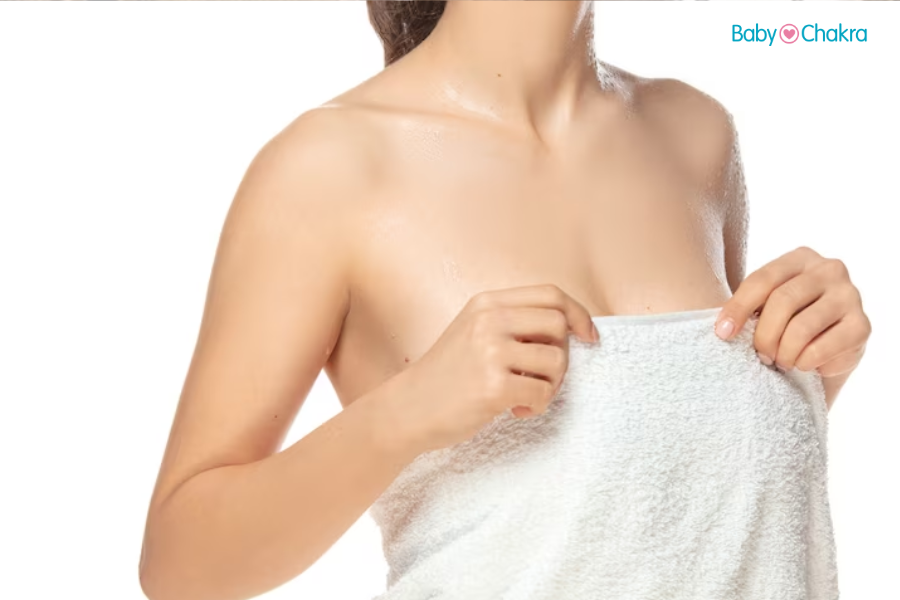
Nipple Care During Pregnancy: How To Keep Them Clean
24 Apr 2023 | 4 min Read
Manisha Pradhan
Author | 1053 Articles
During pregnancy, it’s essential to maintain good hygiene, particularly for your breasts and nipples. This ensures comfort and prepares your body for breastfeeding. We’ve listed some safe and effective tips for nipple care during pregnancy.
Importance Of Nipple Hygiene During Pregnancy
As your body prepares for breastfeeding, it’s crucial to keep your nipples clean and free from bacteria. Good nipple hygiene during pregnancy can help prevent infection, reduce discomfort and cracking, and ensure a healthy start to breastfeeding.
Nipple Care During Pregnancy
Begin by examining your breasts and nipples regularly for any changes in size, shape, or colour. Keep an eye out for any signs of redness, swelling, or discharge, as these could indicate an infection that requires medical attention.
Choose the Right Cleanser
Opt for a mild, fragrance-free, and chemical-free soap or cleanser to clean your nipples. Harsh or scented products can cause irritation or an allergic reaction, potentially leading to further complications.
Cleanse Gently and Thoroughly
Wet your breasts and nipples with warm water, then gently apply a small amount of your chosen cleanser. Use your fingertips or a soft cloth to clean your nipples and the surrounding area in circular motions. Be sure to clean any folds or creases, as bacteria can build up in these areas.
Rinse with Care
Rinse your nipples and the surrounding area with warm water, ensuring that all soap or cleanser is removed. The residue left behind can cause irritation or dryness, so it’s vital to rinse thoroughly.
Pat Dry, Don’t Rub
After cleansing, gently pat your nipples and the surrounding area dry with a clean, soft towel. Rubbing can cause irritation or damage to delicate skin, so be gentle and avoid any abrasive actions.

Moisturise with Caution
If your nipples are dry or cracked, use a nipple cream or balm specifically designed for breastfeeding mothers. These natural products are safe for both you and your baby and can help soothe and heal irritated skin. Avoid using petroleum-based products, as they can clog your milk ducts and lead to infection.
You may want to check out The Moms Co. products that are made with all-natural ingredients and are safe for use during pregnancy and breastfeeding.
Wear the Right Clothing
Choose soft, breathable fabrics like cotton for your bras and tops. Synthetic materials can trap moisture and create a breeding ground for bacteria, leading to infection or discomfort. Ensure your bras fit well and provide adequate support to prevent chafing or strain on your breasts.
Change Your Bra Regularly
Make sure to change your bra daily, or more frequently if you’re experiencing excessive sweating. A clean bra helps prevent the build-up of bacteria and reduces the risk of infection.
Practise Good Hygiene
Maintaining good overall hygiene is crucial during pregnancy. Shower daily, and pay special attention to areas where bacteria can accumulate, such as your armpits, groin, and under your breasts.
Avoid Touching Your Nipples Unnecessarily
Refrain from touching your nipples excessively or allowing others to touch them, as this can introduce bacteria and increase the risk of infection. If you need to touch your nipples, make sure your hands are clean.
Seek Medical Advice if Needed
If you notice any signs of infection or are concerned about your nipple health, consult your healthcare provider for guidance. They can recommend appropriate treatments or interventions to ensure your nipples remain healthy during pregnancy.
Maintaining proper nipple hygiene during pregnancy is an essential part of preparing for breastfeeding and ensuring the health of both you and your baby. By following these simple steps, you can keep your nipples clean, reduce the risk of infection, and lay the foundation for a successful breastfeeding journey.
Recommended pregnancy skincare products:
Also Read:
Caring For Your Hair While Caring For Your Baby: Best Hair Care Routine For New Mums
Skin Care For Mums: The Ultimate Skincare Products List For Healthy Glowing Skin
Cover image source: freepik
A


Related Topics for you
Suggestions offered by doctors on BabyChakra are of advisory nature i.e., for educational and informational purposes only. Content posted on, created for, or compiled by BabyChakra is not intended or designed to replace your doctor's independent judgment about any symptom, condition, or the appropriateness or risks of a procedure or treatment for a given person.

